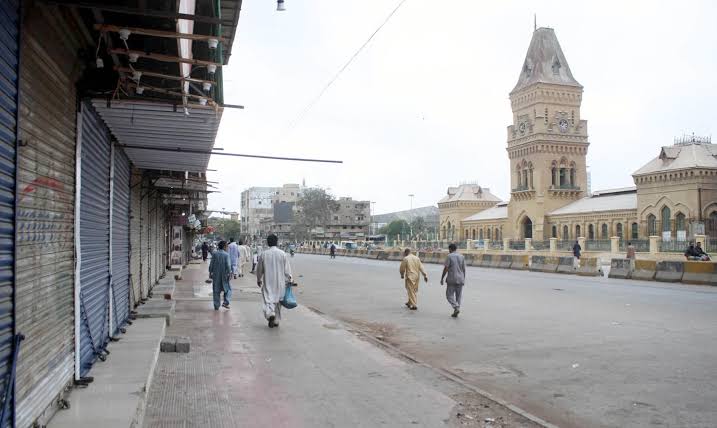As Sindh government starts enforcing stricter measures to practice social distancing, the prices of essential food items, especially pulses and wheat have shot up by 20% in the wholesale market, reported The News.
Karachi Retail Grocers Association Secretary General Farid Qureshi informed the paper on Wednesday that prices of essential food items, especially pulses have increased by up to 20% in the wholesale market.
According to details, split Bengal gram (channa) price was raised by 8% or Rs10/kg to Rs135/kg from Rs125 on March 20. Green gram washed (moong) price has increased to Rs230 from Rs225.
Rate of split red lentil (masoor) increased by 20% to Rs125 from Rs104/kg in the wholesale market. Price of split-washed black gram (maash) rose by 12% or Rs20/kg to Rs185 from Rs165/kg.
Similarly, the price of sugar was raised by Rs1/kg to Rs80/kg and Rs50 per 50 kg bag, and price of wheat flour was raised by 10% to Rs550 from Rs500 for 10 kg.
Qureshi alleged that transporters have increased the rates by 50% despite a decline in petroleum prices. “A Suzuki pickup is charging Rs1,500 per trip against Rs1,000 per trip it charged before the lockdown,” he said. Transporters were saying they increased fares because they were getting all the stuff at higher prices, he added.
Noor Ahmed, a retailer in Karachi’s DHA, said that supply of household items remained normal, but price of wheat flour was raised by Rs10 to Rs15 per 5kg. He said that demand was low, as customers were engaged in buying only necessary food items.
Mumtaz Shaikh, a flourmill owner and leader of Pakistan Flour Mills Association alleged that the government was not supplying wheat to flour mills. He added that they were buying wheat from the open market.
Shaikh also rejected rumours about shortage of wheat, and blamed profiteers, who have increased the prices to take advantage of the lockdown. The government has also stopped movement of wheat to Punjab, as that would also be supplied in Sindh. “So, price of wheat flour should not have increased,” Shaikh added.
The flourmill owner said mills in Sukkur and Larkana were advised not to make ‘maida’ from wheat, and to instead only prepare wheat flour to keep supply smooth. However, he admitted that supply to retail stores might have slowed, as a bulk of flour bags were supplied to a charity organisation that was supposed to provide it to the poor people.
Mehmood Nawaz Shah, senior vice president, Sindh Abadgar Board, said Sindh government had imposed Section 144 on inter-district movement of wheat. This, he said, could cause shortage of the grain in Karachi, as the metropolis did not produce wheat. He urged the government to lift the ban to enable smooth availability of wheat to the citizens of Karachi.

